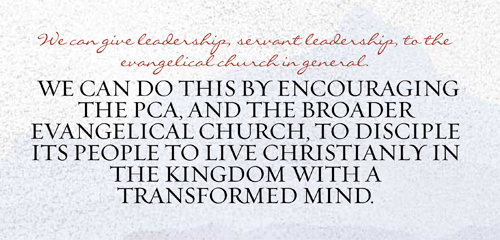![]() This is a good book and well worth discussing and implementing where appropriate. I want to quote from the book’s cover because it says concisely what I would want you to see regarding this. It is written by a Dallas Seminary professor of Theological Studies. His challenge is clear.
This is a good book and well worth discussing and implementing where appropriate. I want to quote from the book’s cover because it says concisely what I would want you to see regarding this. It is written by a Dallas Seminary professor of Theological Studies. His challenge is clear.
“If the church fathers or Reformers showed up at your church, would they worship…or run? The time has come for evangelicals to reclaim the forgotten faith. And this means doing something many are reluctant to do. It means reflecting on the past to rethink the present and inform the future. It means think not just biblically and theologically, but also historically. RetroChristianity challenges us to think critically and constructively about those who have come before us and how that informs our current beliefs, values, and practices. This book will adjust our attitudes about evangelicalism, and will ultimately lead us along a time tested path toward a brighter future.
Svigel writes: “Why does evangelicalism appear to be spinning out of control, losing appeal to younger generations, dwindling in numbers, or selling out to pop culture to must a crowd?” He further writes, ” RetroChristianity fully acknowledges the frustrating and upsetting elements of evangelicalism.” However, we must not whine but present some direction. Further, “RetroChristianity also acknowledges the egocentric nature of many evangelicals’ approaches to church and spirituality. We need to counter the preference driven mentality rampant among so many churches, replacing it with more biblical, historical, and theological framework through which we can make informed decisions regarding doctrine, practice and worship.”
As I read this book I resonated with the author’s concern about evangelicalism having lost its way and especially as he offered some diagnosis of why. He said that as a movement evangelicals stand at a crossroads, having become lost in the forest of forgetfulness. From there he proceeds to give a good explanation as to the history of evangelicalism and what it is. As he does this he makes the reader aware that his aim is to see “our evangelical tradition come to terms with its roots, retrieve its distinctly Christian identity and then grow into the wise, mature adult I believe I can become. He goes on to say that if evangelicalism does not come around, “ours may very well be the last generation of evangelicalism.” Some of the ingredients feeding this immaturity include: positive thinking, self-help, self-esteem, do-it-yourself Christianity. Much of the garbage stinking up the shelves of Christian bookstores is passed off as Christian living but it’s mostly psychobabble or practical proverbs no better than what we find in the secular self-help or generic spirituality sections on our online booksellers.”
Sivgel uses charts, timelines, and sequential dating to show the development of his concern. Part of his challenge is “to reclaim that evangelicalism reclaim that aspect of its original identity it has lost, to reintroduce evangelicalism to the forgotten faith of its forsaken past.”
With that description of what he sees happening, he emphasizes the importance of regaining a sense of our history, who we are, where we have come from, and what we are dangerously neglecting today. His idea is not that Christianity should simply move back in time when there was agreement on the orthodoxy that set us apart. Nor is it tossing off the pass for a brand of pop Christianity that bears no relation or very little to the past orthodox tradition. Changing the message to reach the younger generation is not the answer. He believes while we should return to evangelicalism’s orthodox tradition or foundation, that it has to communicate those truths to today’s world. However, instead of changing the message to fit the audience, as is being done, we need to learn how to communicate those historic or tradition truths in a way that keeps the message the same. What do we do, we might ask? Svigel writes, “An underlying assumption behind this book is that evangelicalism in its varied forms has lost its way. It has entered into what we called a period of “midlife crisis,” forcing us to think about its identity and to consider how to best move forward…retrieving ideas and practices from the Christian past for the present, renewing personal and corporate identity, and thereby providing evangelicalism a positive path toward the future. This the definition of ReteroChristianity presented in this book.” With that he offers three principles to ponder:
- Don’t attempt to change a denominational confession or structure. Remember that orthodox evangelicalism accepts unity in the midst of diversity.
- Nudge, don’t push; patiently approximate, don’t rashly appropriate. Take a slow and easy approach…be satisfied with minor course correction.
- Remember most issues are not simple, so proceed with humility.
He writes, “Without trained and experienced leadership at the helm of our churches, few of the other important changes will be able to be implemented successfully. Why? Because church leaders don’t need worldy wisdom, intuitive hunches, business models, sociological theories or psychological methods. They need biblical, theological, and historical wisdom to apply to ever-changing circumstances.”
His conclusion is an accurate summary of what I read throughout the book. “RetroChristianity is an adjustment of individuals’ and churches’ attitudes and actions, retrieving ideas and practices from the Christian past for the present, renewing personal and corporate identity, and providing evangelicalism a positive path toward the future.” Need I say more?




